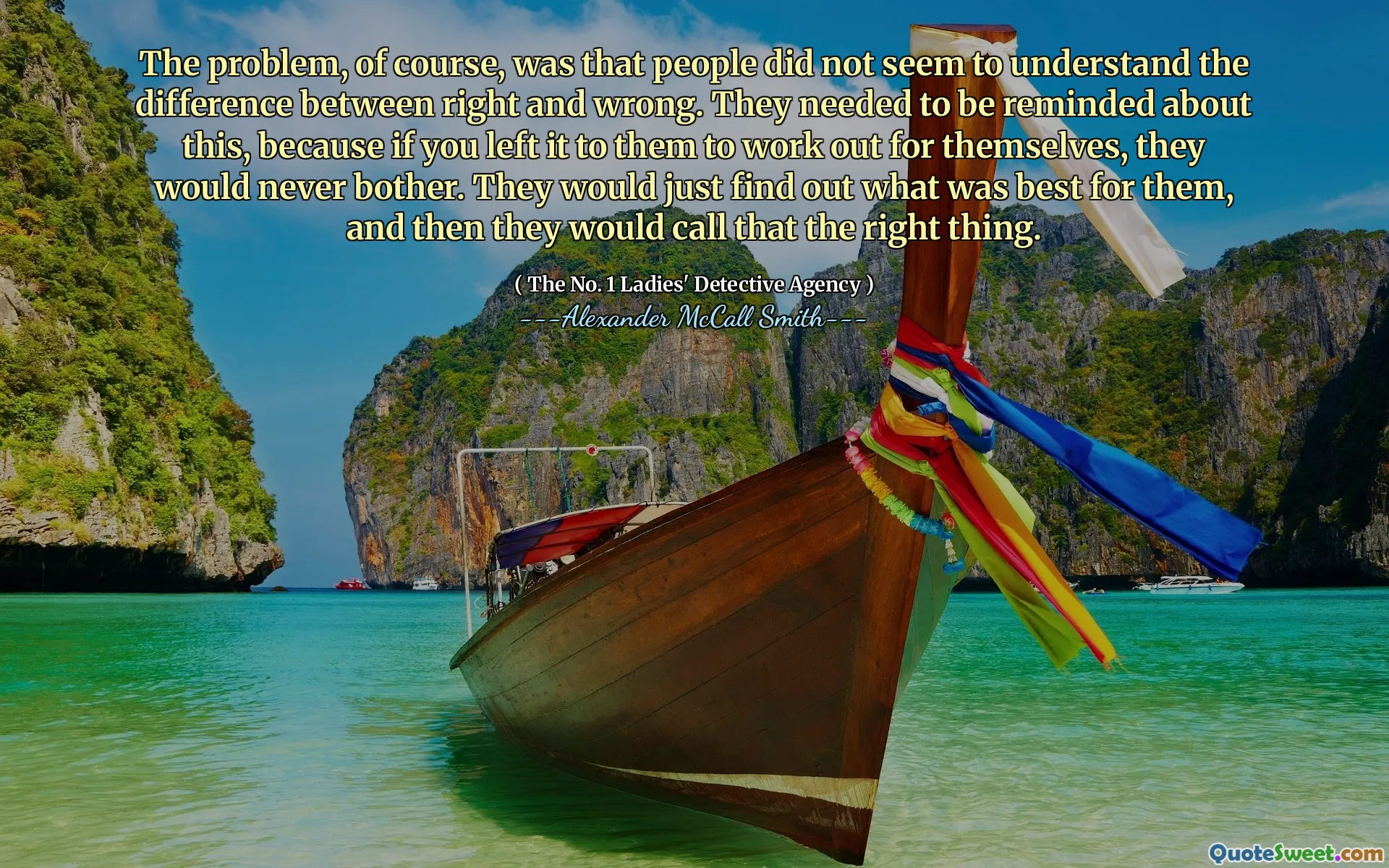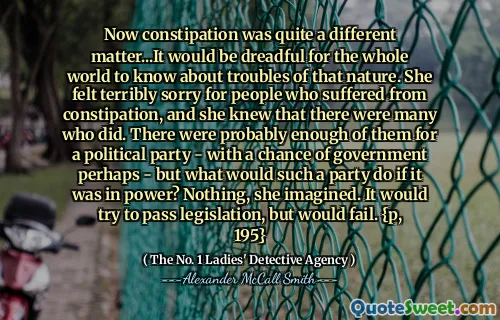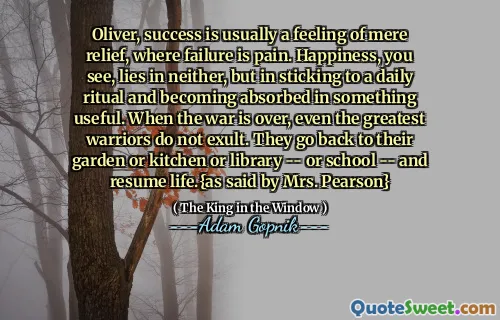
The problem, of course, was that people did not seem to understand the difference between right and wrong. They needed to be reminded about this, because if you left it to them to work out for themselves, they would never bother. They would just find out what was best for them, and then they would call that the right thing.
In the narrative, a significant issue arises from people's inability to discern right from wrong. The author emphasizes the necessity of guidance, suggesting that without reminders of ethical principles, individuals tend to pursue their own interests and rationalize their actions as correct. This self-serving perspective leads to a broader moral ambiguity in society.
Furthermore, the passage highlights the importance of fostering a sense of morality and accountability. It points to the challenges of human nature, where individuals often prioritize personal gain over genuine ethical considerations. To combat this tendency, continuous reflection on moral values is crucial, as well as external prompts that encourage individuals to consider the greater good beyond their own desires.









